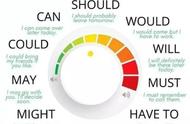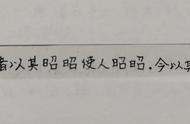情态动词Shall与Should的用法
我们喜欢给别人建议,告诉他们该怎么想,不是吗?当我们使用情态动词给别人建议时,能用英语充分表达自己是很重要的。

Shall和should都是情态动词。在本文中,我们将讨论这些词在英语中使用的基本规则,并给出一些例子。
怎样使用情态动词Shall
The word shall is used to express ideas related to specific rules or laws. (Be careful not to confuse it with “must.”).
“shall”一词用于表达与具体规则或法律有关的思想。(注意不要将它与“must”混淆。)
例句:
- You shall abide by the law.
- Kids shall not enter this room.
The word shall also is used in the future tense to speak about something that will happen or exist:
shall这个词也可以用在将来时中,用来描述将要发生或存在的事情:
1) 一般疑问句
例句:
- Shall I pick your sister up from college?
- Shall we dance?
2) 表达承诺或将来
例句:
- We shall be here at seven tomorrow.
- He shall be in the office on Monday at 10 a.m.
怎么使用情态动词Should
The verb should is used to indicate obligation, duty, or correctness, often when criticizing someone’s actions.
动词should用来表示义务、责任或正确的事,通常在批评某人的行为时使用。
We can use it when expressing a personal opinion in plain language. In other words, we want to advise someone.
我们可以在用通俗的语言表达个人意见时使用它。换句话说,我们用should想给某人建议。
例句:
- You should call the police.
- She should see a doctor.
Should is used to express a desire that something happened in the past (but it did not occur) or regret.
Should用来表达对过去发生的事情(但没有发生)的渴望或遗憾,这是一种虚拟语气,请参见。
例句:
- You should have tried it. It was unbelievable.
- They should have come to the party.
此外,should还可以用来阐明某人的观点。
例句:
- What should we do now?
- Where should I go now?
Should is also used (with emotional overtones) in questions to express surprise, anger, or perplexity after the question words “why” and “how.”
在疑问词“为什么”和“如何”之后,“should”也被用来表达惊讶、愤怒或困惑(带有情绪色彩)。
例句:
- Why should I do that?
- How should I know? I wasn’t there!
这些是情态动词shall、should在英语中应该和应该使用的主要方式。














